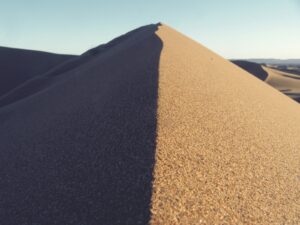Subscribe to the Newsletter
If you are interested in understanding how Traditional Chinese Medicine can improve your life sign up to my newsletter for the latest updates.

In Chinese medicine there are basically six causes of wheezing.
You can have more than one of them at the same time.

For instance, you may have suffered from a severe or prolonged illness or illnesses that weakened your lungs. Such illnesses might have been childhood diseases like severe whooping cough or measles, or prolonged coughs, or illnesses such as tuberculosis of the lungs.
In Chinese medicine these conditions weaken your Lungs and your Spleen. What happens then is that your Lung’s ability (in Chinese medicine) to descend Qi when you breath is impaired, and your Spleen’s ability to disperse (‘transform’ is the technical word) fluids is weakened.
Your Lungs also have an important role to play in maintaining fluid levels in your body. (Think of the effect on your lungs of very dry air, especially hot, dry air. It can make it painful or almost impossible to breathe properly. To perform properly, your Lungs need moisture in the air – though not too much. Then they can help to maintain the fluid and moisture levels in your body.)
If your Spleen can’t transform fluids, they build up deep inside you as Damp and eventually, if there is any heat around, such as from lying in bed at night when heat collects and doesn’t disperse so easily, the fluids turn into Phlegm.
By the way, what about that phlegm you cough up in the morning?
If it’s clear most of the day but a bit yellow in the morning when you wake up, that does not mean that you have bacteria in your lungs – any more than the rest of us.
It simply means that overnight, while you were asleep, the fluids were unable to circulate and, well, cooked.
Cooking them concentrates them and makes them thicker. Once you get up and start breathing normally, the cool air you breathe will cool the fluids, your body will naturally make more which will dilute, cool and wash away the dark phlegm (if you haven’t already spat it out!)
Of course, if the phlegm remains coloured or gets thicker or more yellow or green, then you probably DO have an infection. See Hot Phlegm, below.
The heat for this can also come from what is called Yin deficiency which mostly arises later in life as your body’s ability to cool itself down properly slowly weakens. Click on the Yin Deficiency link to read more about this common syndrome.
If you have an inherited or acquired susceptibility, it doesn’t mean that you WILL get wheezing or asthma. It just makes it more likely. There is plenty you can do to guard against it.

You might not think that what you eat, over time, can be a cause of wheezing and/or asthma, but in Chinese medicine there is often a clear connection.
Why? Because a bad diet messes up your Spleen energy. When your Spleen energy stops working properly, it weakens your Lung energy.
For more about food and diet, read Nutrition. But basically the ancient Chinese noticed that the following upset your Spleen:
However, the healthier you are, the more you can transgress. But even a super-fit individual would weaken his Spleen if he ate the foregoing ‘wrong’ foods too often or for too long.
Anyway, if you weaken your Spleen (and there are other ways to do this too, see below), you end up with Phlegm.
Phlegm lodges in your lungs and throat, blocking your natural Lung actions. What happens then? Wheezing!

Overwork includes
The above are just examples of what is meant by overwork.
What happens is that constant thinking injures your Spleen energy, and the tension and worry or need to keep different times may also upset your Liver energy, which then interferes with your Spleen.
Too much hard physical work, which includes over-lifting, can also cause Kidney Yang deficiency. That means your body may become less good at burning out extraneous fluids, meaning Damp collects. That Damp can easily become Phlegm.
If your work is mental, too much of it tends to damage your Kidney Yin energy. That can lead to Yin deficiency which means any fluids that have become Damp in your body are more easily stewed to become Phlegm.
Eventually the phlegm collects in your lungs, blocking their action and producing wheezing.
In Western medicine, over the last 50 years doctors have gradually come to accept that many diseases start in the mind. Chinese medicine has always accepted this, and in fact the mental or emotional aspect of a disease is always intrinsically there, potentially.

What that means is this. In Chinese medicine, your mental or emotional state can be the cause of your problem. However, it goes further, because physical disease can also produce emotional and mental states, often predictably.
To produce wheezing, common emotional forms of strain are:
If the Kidneys are affected, they may not be able to ‘anchor’ the Lung energy, meaning you can’t get your breath. You can read more about this on the page about Breathlessness.
But the Kidneys also support the Spleen function, so if the Kidneys are weakened, so may also be the Spleen.

I have seen this in practice only a few times, but it appears quite definitely in the classical texts as being a possible cause of wheezing.
But we are talking about excessive sex, and mainly for men. More or less what happens is this:
Of course, what is ‘excessive’ sex? Men vary. But if they start getting, after sex, signs of Kidney Yang deficiency, they are probably doing it too much.
Is there an equivalent for women? Opinions vary. I tend to think that if a woman has very heavy periods that drain her, and/or too many pregnancies close together, she might be draining her Jing-essence.
If so, the consequence might be the same as for men, even if the means were different.

Although I’ve left this until last, it is often the main trigger. Wind can be triggered by environmental factors, including the weather, air-conditioning, central heating, drafts and sudden changes.
Some people are what I call ‘windy’, meaning not that they suffer from disturbing levels of flatulence, but that they are very changeable.
Often young people are like this, and you have to put up with them, but their changeable, unpredictable personalities can make them more susceptible to Wind, and can, what with banging doors with open windows lead to drafts and bad air. Their habits of bad posture and irregular sleep patterns don’t help and weaken their Lung Qi.
Wind also carries pollens and other allergens, and in susceptible individuals may trigger wheezing, amounting to asthma. See more under asthma cause.

Hot phlegm symptoms have symptoms not just of Phlegm but also of Heat. They include:
Cold Phlegm this has signs of Cold as well as of Phlegm:
If it turns out that you develop an unhealthy fascination with phlegm (like me) then you’ll be entranced to discover that I’ve written a book on it.
I wrote it after looking at a huge number of websites and blogs that purported to explain how to get rid of it. I think Chinese medicine has a much better grasp of the matter.
My book shows you what to do in around 80% of phlegm problems.
The book is not exactly poetic but it is useful, and the reviews I’ve received have been very positive.

In Chinese medicine, treatment of wheezing can be done during acute attacks – of course! See Hot and Cold Phlegm above.
Just as important though, is to deal with the underlying susceptibility which, if you’ve read what’s above, means treating one or more of the deficiencies of your
This is usually better done out of season if your problems occur seasonally, or otherwise between acute attacks.
If you don’t do this, you’ll continue to get the acute attacks.
I have found, having practised in Edinburgh since 1982, that many people seek help during the acute attack but, though requested, don’t return for treatment between the acute attacks. So they just keep coming back every year!
Please, if you suffer from wheezing, whether or not it’s diagnosed as being asthmatic, do seek treatment between acutes or outside the seasons that trouble you.
Just think! You might even not get acute attacks again!

Stay in Touch!
No spam, only notifications about new articles and updates.

Book a Video consultation if you want to know more about your symptoms

This Introductory Chinese medicine course introduces you to the amazing thinking behind this ancient medicine, now increasingly in demand.

The Scottish College for Chinese medicine provides introductory courses for all, explaining Chinese medicine and its cultural background.

Master Tung’s acupuncture is a hidden treasure, lost to China but recovered in Taiwan from where it spread round the world.

Knee pain has five main causes. It’s certainly worth trying acupuncture before you resort to surgery!
Subscribe to the Newsletter
If you are interested in understanding how Traditional Chinese Medicine can improve your life sign up to my newsletter for the latest updates.
Subscribe to the Newsletter
If you are interested in understanding how Traditional Chinese Medicine can improve your life sign up to my newsletter for the latest updates.